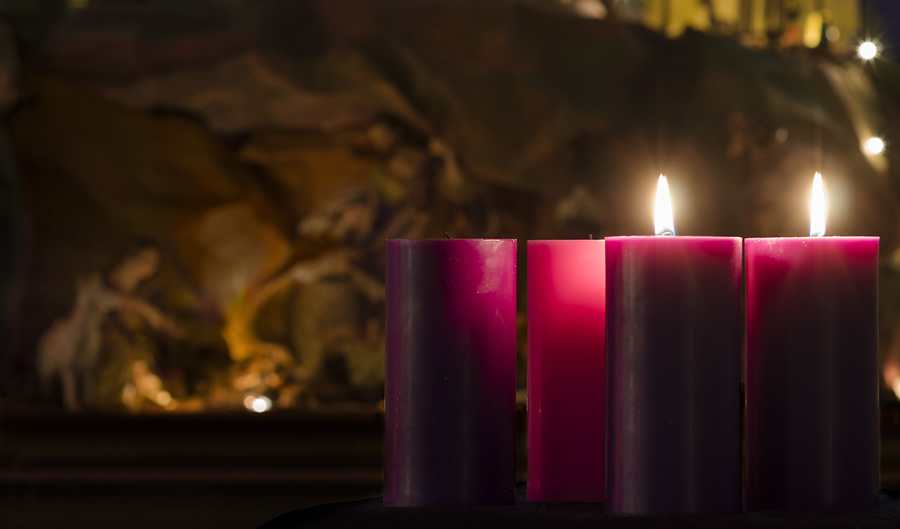
2nd Sunday of Advent
12-06-2020Weekly ReflectionMark starts his Gospel alluding to Isaiah’s description of the Precursor or Herald of the Messiah. The allusion to the prophet and the reference to his prophetic action implicitly depicts John the Baptist as the link between the Old and New Testament. Technically putting John as the last prophet of the Old Testament but the first witness to Jesus Christ, the awaited Messiah. The mention of Isaiah is important because he was foremost among the Major Prophets to prophesy the coming of the Messiah. The text of v.2: “I am sending my messenger-he will prepare the way before me…” originally comes from (Mal. 3:1), points to the fact that the Old Testament, if read in the light of the Messiah/Christ, is itself a Gospel.
What is the mission of this Herald of the Messiah? “Prepare the way of the Lord, make His path straight.” Just as in Exodus, God promises to send his messenger to Israel and guide them to the promised land, the character we all know to be attributed to Moses. Someone prepares the way is a classical expression in Jewish literature of God’s comfort and salvation. In the Christian context, John the Baptist is alluded to as the voice in the wilderness and Jesus is the Lord whose ways he prepares and makes straight.
Verse 4 introduces the figure of John the Baptist whose ministry proclaims the baptism of repentance for the forgiveness of sin. Participation in John’s baptism is a sign of a person’s willingness to change and God’s willingness to forgive sins before the coming of His Kingdom. Seeking the baptism of John, people realized they have strayed from God and in need of repentance. John preached the baptism of repentance and acknowledges even from the beginning that he is not the Messiah. Before people are misled of his ministry, he admits that he is simply the Precursor/Herald of the Messiah.
There is a big difference between the baptism of John and the baptism that Jesus will eventually confer to those who will follow Him after the death of John the Baptist. The baptism of repentance was conferred to those who realized that they are in need of repentance. Just as the confession of sin is not the same as the Christian sacrament of penance. But is still necessary and pleasing to God because it is the sign of a person’s acceptance of the need for repentance. It should be clear that the baptism of John did not affect the forgiveness of sins, but was simply a baptism of repentance that prefigured the remission of sins. That the forgiveness of sin is the ministry of the Messiah, Jesus Christ’s work of redemption. John the Baptist was the prophetic figure in the image of the prophet Elijah, and his proclamation and ministry prepared the way for “the stronger one” who will baptize with the Holy Spirit.
John’s diet consists of “locust and wild honey” similar to Elijah's. Was he presenting himself as Elijah? This unusual diet may have been part of his discipline of ritual purity rather than asceticism. John clothed in camel’s hair and a leather belt around his waist” is reminiscent of Elijah. All these similarities posit the question: Was it merely that he stood in the line of the prophets?
John has no illusion that he is the awaited Messiah, he knows who he is and his mission. A voice of one crying out in the desert: “Prepare the way of the Lord, make straight his paths.” With respect to the Messiah, the Christ, John admits his unworthiness even to perform the task generally attributed to slaves. He acknowledges that someone mightier than him is coming.
John the Baptist prepared the hearts of the people of God for the coming of the Messiah, Jesus Christ by proclaiming the baptism of repentance and demanding an inner preparation. He demanded a sincere repentance for our sins, an honest confession of wrongdoings, and a firm resolution of a change of heart. The spiritual preparation is what the Father wants of His people in this season of Advent: the humble acceptance of one’s sinfulness, and an open heart to the stirrings of the Spirit so that the Child-Jesus will truly be born in our hearts
BACK TO LIST